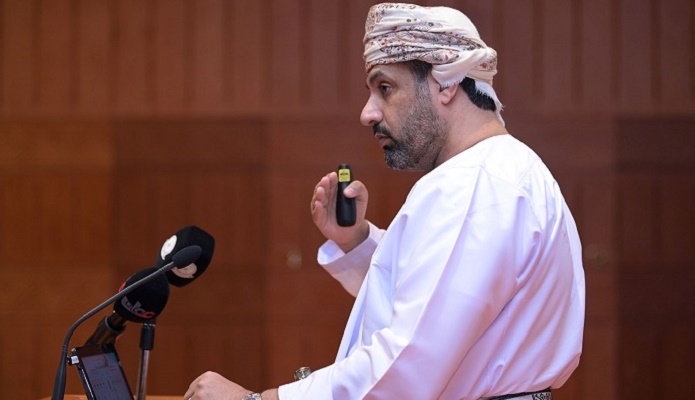
Muscat: The Ministry of Labour is reviewing and updating laws and legislations of work in the Sultanate and studying the replacement and employment plan in cooperation with the supervising government agencies and various economic sectors. Dr Mahad bin Said Baowain, Minister of Labour, gave a visual presentation on Thursday before the Majlis Al Shura about the ministry’s plan for the Sultanate’s labour market in 2021.
During the presentation, His Excellency the Minister of Labour also referred to the pillars from which the ministry’s action plan emerges, represented in the “Oman 2040” vision, the tenth five-year plan (2021-2025), the results of diagnosing the current situation of the labour market, the national strategy for Oman’s digital society and e-government, and reviewing and updating laws, legislation, replacement and employment management in cooperation with supervisory government agencies and various economic sectors, developing labour market policies, enhancing the attractiveness of the private sector, and national programmes for rehabilitation and training of jobseekers.
The presentation covered five main topics: (1) Public-private sector partnership; (2) The Labour Ministry’s Plan 2021; (3) Procedures to generate jobs for Omanis; (4) Efforts to implement employment initiatives (including direct employment in fresh jobs, replacement of expatriate manpower and adjustments for lay-off in Omani labour); and (5) Employment initiatives. At the conclusion of the session, the minister answered queries raised by the Majlis members about the labour market, employment opportunities, expat replacement plans and ways to resolve the issue of Omanis whose services have been terminated.
Their Excellencies members of the Council stressed during their discussions the importance of continuity of partnership between the government and the Council in issues related to the employment of the Omani workforce, since most of the initiatives that are found in the presentation and the Ministry is working on within its current plans include proposals and recommendations that came out of the Council in previous periods.
The discussions also agreed on the importance of emphasising the message of higher education and its role in meeting the current and labour market requirements, and linking generations to scientific, cognitive and scientific developments that provide them with sufficient expertise to achieve those requirements, and this is what must be confirmed by the Ministry’s procedures in dealing with available job opportunities in order to achieve a balance between the type of jobs, the level of graduates and their specialisations.